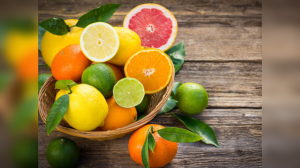While trying to lead healthier lives through what they eat, most tend to concentrate on the ingredient quality, but not as much on the cookware that goes into preparing meals. Ordinary kitchen utensils such as non-stick pans, aluminium pots, and plastic spatulas do not sound harmful at all, yet they have been found by studies to be causing long-term health problems when used daily. The chemicals used in cooking can influence not only the flavor of foods, but also their safety.
Dr. Tarang Krishna, an authoritative cancer doctor and integrative health expert, says that cookware is a ubiquitous but neglected source of chemical exposure in homes. He says that some materials emit toxins when subjected to heat, and these toxins become concentrated in the body with prolonged usage. This accumulation has been associated with inflammation, hormonal disturbances, and higher cancer risk. Dr. Krishna is stressing that what your food comes into contact with is as crucial as what it contains.
Dr. Krishna enforces in his own clinical practice that individuals move towards a cleaner, toxin-free life. That means reconsidering what is used on a daily basis in the kitchen. Awareness, not fear, is the aim. By simply substituting a few detrimental items with safer options, exposure to potentially harmful substances that can impact general well-being can be lessened.
Aluminium utensils
Although aluminium is widely used due to its cost and ability to conduct heat, it is dangerous to cook acid or salty foods in it. This leaches the aluminium into the food and it is believed that it can cause Neurological disease and oxidative stress, which both lead to chronic inflammation and can be involved in disease processes, are associated with long-term exposure.
Non-stick pans with Teflon coatings can emit toxic fumes when overheated. The fumes include PFAS, PFOA which is a chemical class under investigation for its association with cancers, liver injury, and thyroid disruption. Scratched, worn-out non-stick pans also flake off into food, posing an added risk of exposure.
Plastic, particularly when warmed, can leach hormone-disrupting chemicals like BPA and phthalates. Using hot dishes, stir-fried or reheating food in plastic containers might be convenient, but it can subtly affect endocrine function, metabolism, and immunity over time.
Washing a non-stick surface with a steel 'juna' destroys the coating and leaves the underlying material exposed. This not only shortens the life of the pan but also promotes chemical leaching into food in the long run.
Well-lined brass utensils are safe for nutrients and maintain the traditional wholeness of food. Brass is antimicrobial in nature and is being revived in clean cooking.
Cast iron is a naturally non-toxic, non-stick alternative that gets better with age through seasoning. It also increases dietary intake of iron, which may be useful for those who have low iron levels.
Good for deep-frying and stir-frying, iron woks retain heat and flavor and keep food toxin-free and free from synthetic coatings.
Newer articles
Older articles
 Prithvi Shaw Admits to Losing Focus, Blames "Wrong Friends" for Career Setback
Prithvi Shaw Admits to Losing Focus, Blames "Wrong Friends" for Career Setback
 Test Your Vision: Can You Find All the Hidden Animals in This Viral Optical Illusion?
Test Your Vision: Can You Find All the Hidden Animals in This Viral Optical Illusion?
 Tiêu đề:
Unveiling the New 7 Wonders of the World: A Traveler's Guide to History's Greatest Masterpieces
Tiêu đề:
Unveiling the New 7 Wonders of the World: A Traveler's Guide to History's Greatest Masterpieces
 7 Science-Backed Strategies to Naturally Elevate Oxytocin, the 'Love Hormone'
7 Science-Backed Strategies to Naturally Elevate Oxytocin, the 'Love Hormone'
 Smith Aims for Second Test Return After Unique Baseball Cage Training in NYC
Smith Aims for Second Test Return After Unique Baseball Cage Training in NYC
 Azhar Mahmood Named Interim Test Coach for Pakistan
Azhar Mahmood Named Interim Test Coach for Pakistan
 Aamir Khan Details Underworld Invite to Dubai Party, Refusal Amid Family Safety Fears
Aamir Khan Details Underworld Invite to Dubai Party, Refusal Amid Family Safety Fears
 Foods to Avoid on an Empty Stomach: What Not to Eat First Thing in the Morning
Foods to Avoid on an Empty Stomach: What Not to Eat First Thing in the Morning
 Jury Begins Deliberations in Diddy Sex Trafficking Trial; No Verdict on Day One
Jury Begins Deliberations in Diddy Sex Trafficking Trial; No Verdict on Day One
 Sridevi's 'Laadla' Set Haunted by Late Divya Bharti's Unfinished Scene: Raveena Tandon Recalls Eerie Moments
Sridevi's 'Laadla' Set Haunted by Late Divya Bharti's Unfinished Scene: Raveena Tandon Recalls Eerie Moments